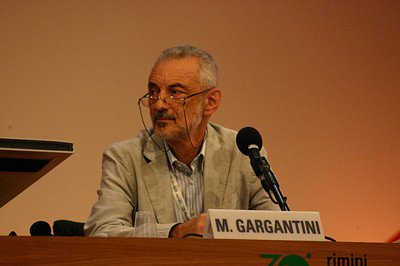Know the ways
‘The ways of simple people indicated by Hildegard of Bingen. The spirituality and genius of Hildegard of Bingen, the Benedictine nun who lived in Germany between 1089 and 1176, continue to fascinate those who encounter her today for the breadth of their unitary, global conception of reality, something to which many aspire. The planetary computer-technology village, towards which the technological civilisation of the west is moving fast, does not respond to the need for unity, both interior and exterior at the same time, which each of us surprisingly finds in him or herself. On the contrary, the dilated room of contemporary rationality has something suffocating about it, something claustrophobic. Hildegard, in a simple and knowledgeable way, opens for us the door onto the experience of freedom in the man-nature-God relationship; she presents in an absolutely novel way, the Christian story of salvation, to the point of defining the moral dimensions which it can spark in each of us. She offers us a wide and proven knowledge centred on the relation between microcosm and macrocosm; the analogical relation between elements and things of creation, having a consistency of their own but based on God and regulated by God. Benedictine nun and doctor of the Church, Hildegard, in a very natural manner, managed to concretely perceive the cosmic harmony by which her monastic life was regulated; music for her was not simply an expression of the movement of the heavens, but also a fundamental element for regulating relations between things. The music and songs this woman composed represent the expressive peak of her humanity and her culture. Her equilibrium and positive sense of life, the “sober intoxication” of her spirit, her ability to benefit from a multiethnic environment and her creative originality enable us to grasp in her the prophetic aspect of a modernity of Christian derivation. Her doctrine, which touches on a vast framework of principles, from the theological to the natural, is completely foreign to the soloistic conception of many recent esoteric sects, who are multiplying so fast. These attempt to take possession of her message and her personality through crude and misleading interpretations: both the one and the other, instead, are an extremely valuable heritage of the Church and, more in general, of every cultural expression capable of respectfully considering the Christian tradition.’











